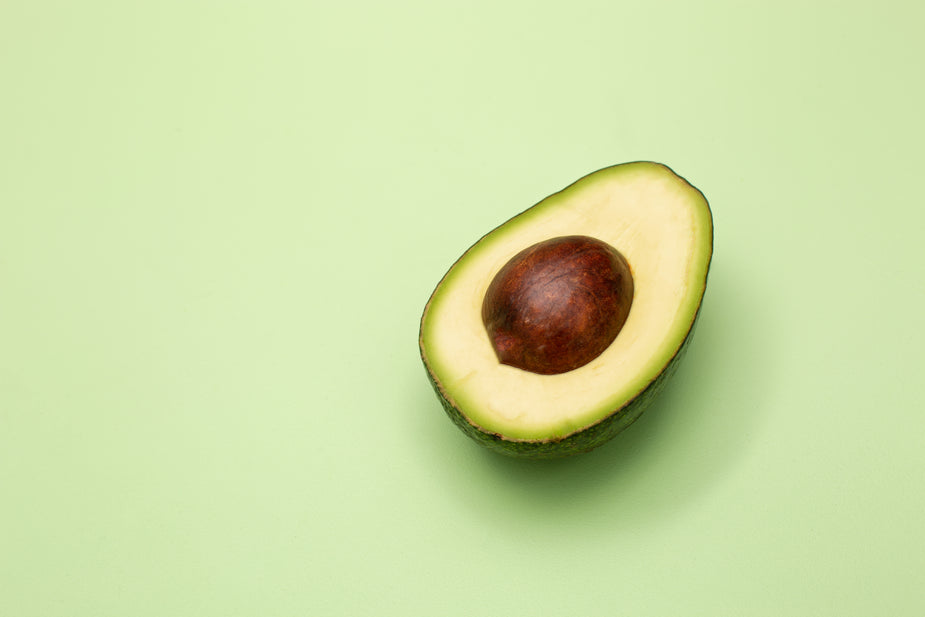Deciphering Low Carb Myths and Misconceptions
Overview
This blog explores low-carb diets, debunking common myths such as the belief that they mean eliminating all carbs or that all carbs are bad. It highlights the health benefits of low-carb eating, including improved blood sugar control and increased energy. The article also provides guidance on building a low-carb pantry with healthy fats, low-carb vegetables, and sugar alternatives, along with recipe inspirations. Emphasising a balanced approach, it encourages readers to enjoy a diverse diet while following a low-carb lifestyle.
Frequently Asked Questions
1. What is a low carb diet?
2. Do low carb diets mean no carbs at all?
3. Are all carbohydrates bad for you?
4. Can a low carb diet lead to nutritional deficiencies?
5. Is a low carb diet only for weight loss?
In recent years, the low carb lifestyle has gained immense popularity, touted for its potential health benefits and weight loss prowess. Despite its growing admiration, myths and misconceptions surrounding low carb diets abound, leaving many confused about what it truly entails. So, let's dive into these misunderstandings and clarify the facts that can help you make informed choices, including how to stock your Sugar-Free Pantry Essentials.
Understanding Low Carb Diets
A low-carb diet primarily focuses on reducing carbohydrate intake, often swapping it for protein and fats. By limiting carbs, the body enters ketosis, a state where it begins to burn fat for energy instead of glucose. This metabolic shift is credited with many of the benefits people associate with low-carb diets, including weight loss and improved mental clarity. However, the key to this lifestyle lies not just in cutting carbs but also in choosing the right foods. Here's where many myths come into play.
Common Myths About Low Carb Diets
Myth 1: Low Carb Means No Carbs
One of the most persistent misconceptions is that following a low-carb diet means cutting out carbohydrates entirely. This couldn’t be further from the truth. Carbohydrates are found in a variety of foods, including fruits, vegetables, whole grains, and legumes, each providing essential nutrients and health benefits. The goal of a low-carb diet is to identify and limit high-carb foods, particularly processed sugars and grains, while incorporating healthier options.
Myth 2: All Carbs Are Bad
Not all carbohydrates are created equal. Healthy carbs such as leafy green vegetables, berries, and nuts are packed with vitamins, minerals, and fibre. These foods can have a minimal impact on blood sugar levels, making them suitable for a low carb diet. Focusing on the right sources of carbohydrates is key to maintaining a balanced and nutritious diet, aligning perfectly with your Sugar-Free Pantry Essentials.
Myth 3: You’ll Get Nutritionally Deficient
Another common fear about low carb diets is the risk of nutritional deficiencies. While it’s essential to ensure that you’re getting a diverse range of nutrients, a well-planned low-carb diet can provide all the necessary vitamins and minerals. Incorporating plenty of low-carb vegetables, nuts, seeds, and healthy fats can help maintain nutritional balance, all while satisfying your taste buds.
Myth 4: Low Carb Diets are Only for Weight Loss
While many adopt low-carb diets primarily for weight loss, the benefits extend far beyond shedding pounds. Studies have shown that low-carb diets may improve blood sugar and insulin levels, aid in reducing cravings, and lower the risk of heart disease. It’s not just about fitting into your jeans; it’s about improving your overall health and wellbeing.
How to Build Your Low Carb Pantry
Now that we've debunked some myths let’s talk about how to create a successful low-carb pantry. Stocking your kitchen with the right essentials is vital for navigating this dietary lifestyle. Here are some Sugar-Free Pantry Essentials to consider:
Healthy Fats
- Olive Oil: A great source of monounsaturated fats that can help reduce inflammation.
- Coconut Oil: Perfect for cooking and baking, it contains medium-chain triglycerides (MCTs) that are easily converted into energy.
- Avocado Oil: Another healthy fat that can enhance your meals and help with nutrient absorption.
Low-Carb Vegetables
Vegetables are a great way to pack your meals with nutrients without loading up on carbs. Here are some excellent choices:
- Spinach
- Kale
- Broccoli
- Cauliflower
- Zucchini
Sugar Alternatives
If you’re keeping an eye on sugar intake, stocking up on sugar substitutes is crucial. Some popular options include:
- Stevia: A plant-based sweetener that contains no calories and doesn’t elevate blood sugar levels.
- Erythritol: A sugar alcohol that is low in calories and has a low glycemic index.
- Monk Fruit Sweetener: Another natural sweetener with a low impact on blood glucose.
Proteins and Dairy
Your pantry should include healthy protein sources as well. Options like:
- Chicken
- Grass-fed beef
- Fish
- Eggs
When it comes to dairy, consider full-fat options such as:
- Cheese
- Cream
- Greek yogurt (plain and unsweetened)
Snacks and Quick Options
To stay on track, having snacks readily available can make a big difference:
- Mixed nuts
- Beef jerky (sugar-free)
- Nut butters (without added sugar)
Debunking Additional Misconceptions
Myth 5: Low Carb Diets Cause Bad Breath
While some people experience changes in breath when starting a low-carb diet, this is often temporary and related to ketosis. As your body transitions into fat-burning mode, it produces acetone, which can affect breath odour. Staying well-hydrated and practicing good oral hygiene can help mitigate this effect.
Myth 6: Low Carb Means Eating Only Meat
It's a common belief that low-carb diets are solely focused on meat consumption. However, many delicious and nutritious low-carb options include a variety of foods. Including a mix of vegetables, healthy fats, and proteins can result in a fulfilling and enjoyable diet, ensuring you reap all the benefits without the boredom.
Myth 7: Low Carb Diets Are Too Expensive
While the initial investment for certain low-carb specialty foods may seem higher, embracing whole foods and cooking meals at home can be budget-friendly. Planning your meals around seasonal vegetable choices, buying in bulk, and opting for frozen produce can keep costs down. Don’t forget, investing in your health can save future medical expenses!
Myth 8: You Can’t Enjoy Carbs at All
Many people believe that choosing a low-carb lifestyle means saying goodbye to all things carb-related. On the contrary, it’s about moderation and choosing the right types. Whole grains in small quantities can be incorporated, alongside the best Sugar-Free Pantry Essentials, which make it possible to enjoy a satisfying, flavorful diet while maintaining your low-carb preferences.
The Health Benefits of Low Carb Diets
Embracing a low-carb lifestyle goes beyond just weight loss. Here are some health benefits that this diet can offer:
- Improved Blood Sugar Control: Low-carb diets may help regulate blood sugar levels, making them beneficial for individuals with diabetes or insulin resistance.
- Increased Energy Levels: Many individuals report experiencing steady energy levels once their bodies adapt to burning fat as fuel.
- Enhanced Mental Clarity: Ketosis can also improve cognitive functionality, as the brain often performs better on ketones than carbohydrates.
- Reduced Hunger and Cravings: A high-protein, low-carb diet can promote satiety, leading to fewer instances of snacking and mindless eating.
Recipe Inspirations to Keep You Motivated
To further assist in your low-carb journey, here are some recipe ideas that lean heavily on your Sugar-Free Pantry Essentials.
Low-Carb Cauliflower Fried Rice
A delightful and filling substitute for traditional fried rice, chop up some cauliflower, stir-fry with your choice of vegetables and protein, and season to taste. You won’t even miss the carbs!
Zucchini Noodles with Pesto
Swap pasta for zucchini noodles! Toss spiralled zucchini with homemade or store-bought pesto for a quick and easy weeknight meal that’s delightful and nutritious.
Egg Muffins
Prepare batch-cooked egg muffins using beaten eggs, spinach, cheese, and any protein of your choice. They make for a quick breakfast or snack that keeps you full and satisfied.
Your Go-To Resource for a Low Carb Lifestyle
As you navigate the world of low-carb diets, remember to focus on whole, unprocessed foods, and keep your pantry stocked with Sugar-Free Pantry Essentials. By dispelling myths and embracing a hearty, varied diet, you can enjoy significant health benefits while remaining satisfied and energised.
With the right mindset, a dash of creativity, and a few essential recipes in hand, you’ll soon find that the low-carb lifestyle is both manageable and enjoyable. Don’t let misconceptions hold you back—step confidently into a healthier future, filled with delicious food and empowered choices!
Explore another user's Shopify or Wix store by following this link to their store. Keep in mind that this is a promotional link, and we assume no responsibility for the content of the linked store.




